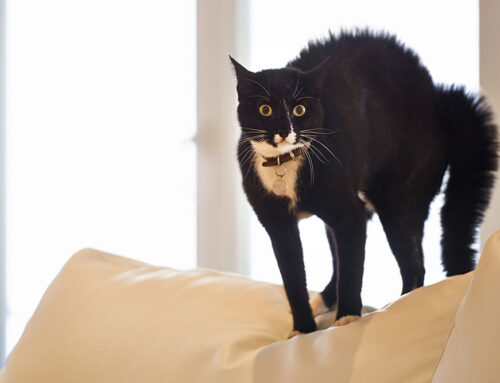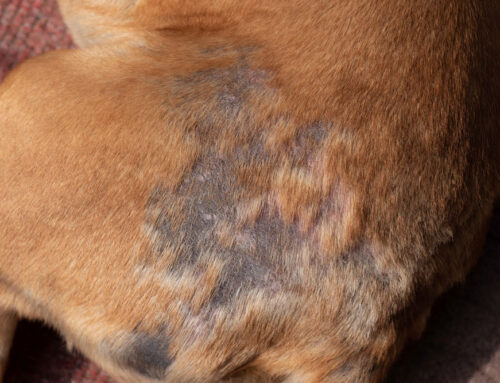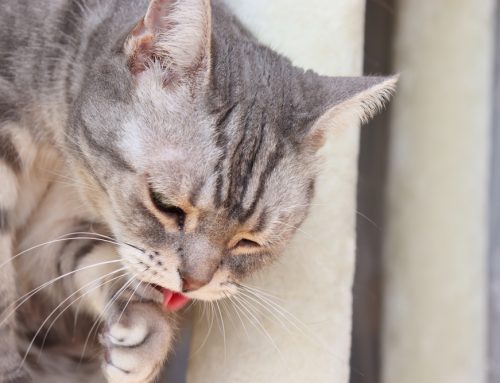Watching your senior pet age can be difficult, especially when you start to notice changes in activity, mobility, behavior, or overall health. Older pets may develop chronic or terminal illness, which can affect all aspects of their life and your household. Treatment can help control aging changes and many disease processes, but most will progress over time. At Tidmore Veterinary Hospital, we want your senior pet to live the longest, healthiest life possible by helping you to assess their quality of life (QOL).
Common conditions in aging pets
Like their human counterparts, senior pets often develop chronic, age-related illness that can diminish their QOL. These diseases can cause physical and mental changes in your pet that should be monitored for progression. The most common conditions in senior pets include:
- Arthritis
- Kidney disease
- Heart disease
- Endocrine disorders (i.e., Cushing’s syndrome, diabetes, hypothyroidism)
- Cancer
- Cognitive dysfunction
Senior pet quality of life parameters

These chronic diseases can impact your pet’s QOL, but because each pet is affected differently, they must be evaluated as a whole. To evaluate overall QOL, pet owners should consider each of the following categories:
- Pain — Easily controlled pain has little impact on QOL, but pets with severe pain or difficulty breathing are likely suffering.
- Nutrition and appetite — Poor appetite accompanies many chronic diseases, and inadequate nutrition can cause further decline. Is your pet eating enough on their own? Can you hand feed or supplement their diet?
- Hydration — Kidney failure and some endocrine disorders cause increased thirst, dilute urine, and chronic dehydration, which makes pets feel weak and sluggish. Is your pet getting enough water or supplemental fluids to prevent dehydration?
- Cleanliness — Immobile pets or those with urinary or digestive tract problems can become easily soiled. Can you keep your pet clean enough to prevent skin problems or hair mats?
- Mobility — Weak or paralyzed pets can develop skin sores, urinary tract infections, or become soiled. Is your pet distressed by their immobility? Can you keep them clean and perform passive mobility exercises? Can you assist them with a device?
- Social interactions — Pets may withdraw because of pain or senility that change their social interactions. Is your pet irritable? Has your relationship changed for the better or worse?
- Happiness — Do you feel your pet generally enjoys life on a day-to-day basis? Do they still want to play, eat, and interact?
Discuss QOL changes with your veterinarian to decide how to best proceed. With the exception of pain, no one category outweighs another, and each pet’s priorities will differ. For example, some pets will be distressed by their reduced mobility, while others will gladly accept more lounging time. Consider listing the things your pet enjoys, such as eating treats, rolling in the grass, sun-bathing, a special toy, and being brushed, and monitor for changes in those specific areas. Also, if your pet has a chronic disease, consider their good versus bad days. When you feel the bad days outweigh the good, it’s time for a chat with your veterinarian.
Improving senior pet quality of life
If your pet scores low in any QOL category, you should consider changes that can help them feel better and improve their score. Immobile pets may benefit from a cart or sling, arthritic pets do well with rugs placed strategically for traction, thin pets appreciate extra plush bedding, and all pets appreciate regular grooming and bathing that helps them stay fresh and clean. Many medical conditions are manageable with medications, so follow your veterinarian’s recommendations and treatment plan. When you choose not to pursue chronic disease treatment, or treatments are no longer effective or causing more harm than good, you may wish to consult a veterinarian who specializes in end-of-life (i.e., hospice) care.
Saying goodbye to your senior pet
When your pet consistently scores low in one or more QOL areas, you should consider discussing euthanasia with your veterinarian, who can help you decide if more treatment would be helpful, and guide you through the process. Saying goodbye is emotionally painful, but may be the best choice for your chronically ill pet.
Aging changes are inevitable, but paying attention to your pet’s individual needs and maintaining a big-picture perspective can help you evaluate their overall QOL. Treating your pet’s medical conditions and making changes to help them cope can make their golden years the best ones yet. If you have questions or concerns about your senior pet’s health, or would like us to help you evaluate their QOL, contact Tidmore Veterinary Hospital to schedule a consultation.








Leave A Comment